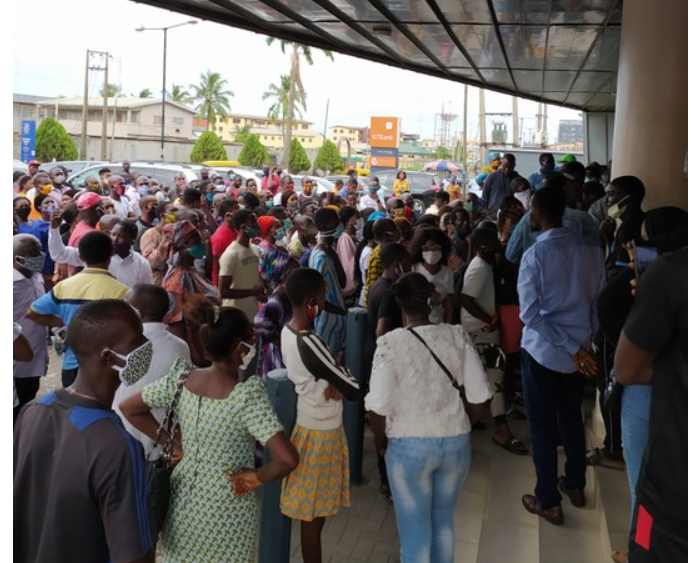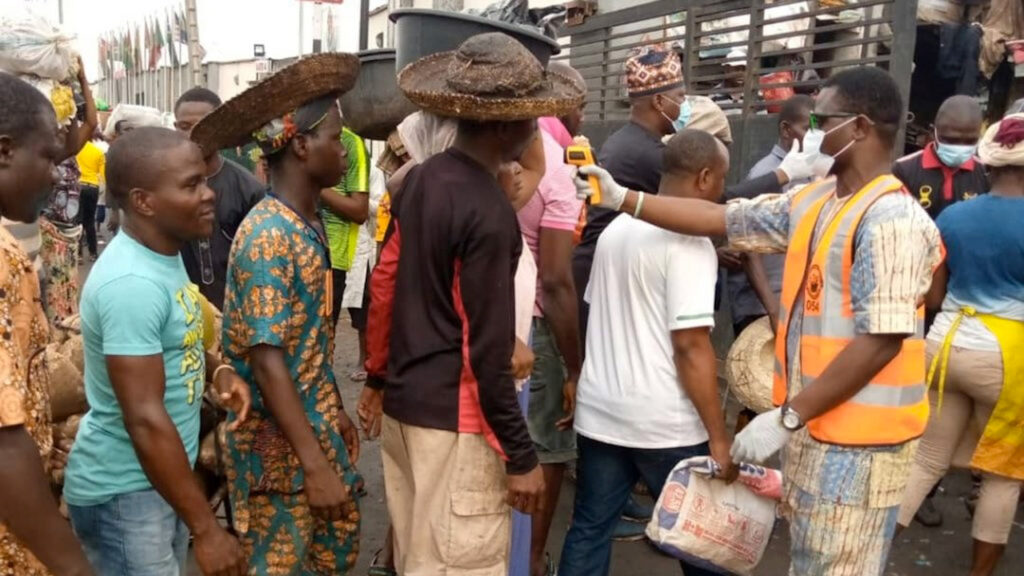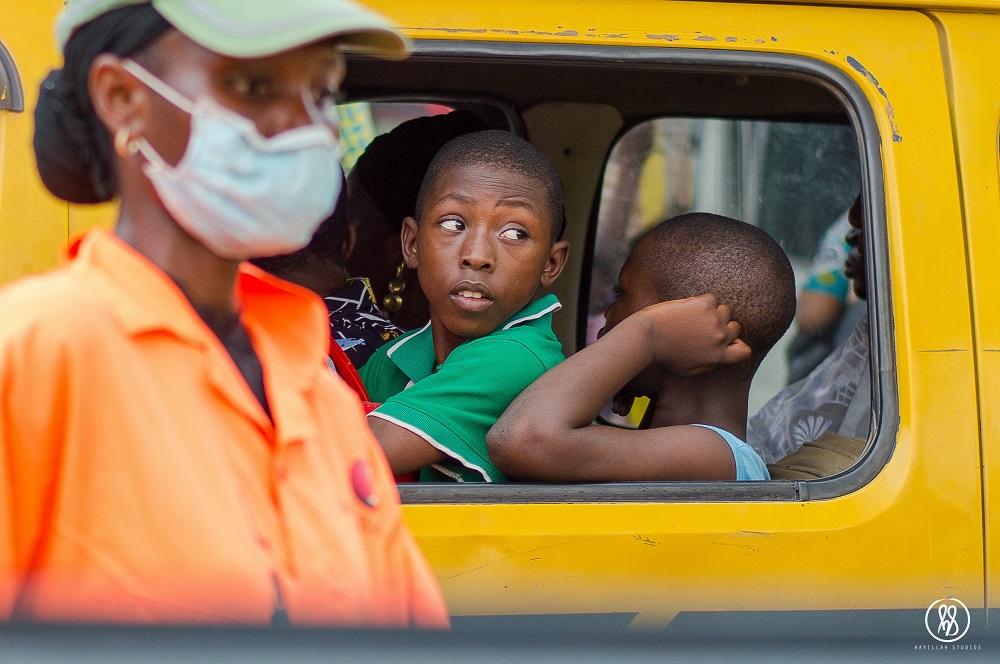Lagos: Lock down or open up?
May 20th, 2020
On May 4, Nigeria’s federal government gradually started easing a five-week lockdown in Nigeria’s commercial capital, Lagos State, along with Ogun State and the Federal Capital Territory. The aim was to gradually reopen some businesses, with a view to eventually fully re-opening critical sectors of the economy. Laila Johnson-Salami, a 23-year-old Correspondent from Lagos, Nigeria, looks at the effects of easing the lockdown in a city with over 20 million residents.
The decision by the government to ease lockdown restrictions came after weeks of economic hardship on citizens that could not be sustained with the limited measures that had been put in place.
In Lagos State, the plan is to reopen the economy in three phases over a six-week period. But just a week in, poor adherence to health guidelines by the public may leave Lagos State governor Babajide Sanwo-Olu no option other than to impose another lockdown.
As businesses reopened on Monday, May 4, with limited hours for operation, the streets of Lagos were an eyesore. Banks and markets in particular were over-congested with people eager to access services and products they had had little or no access to for weeks.
All public health guidelines provided by the government, which included the mandatory use of face masks and physical distancing, were thrown out the window.
“I have not been able to access money from my account for the past month,” said Adetayo, a young photographer in the city. “I have had to borrow money from my older brother to survive the lockdown, so I had no choice but to queue with the crowd and wait for my turn to enter.”
While many have criticised the banks in particular for limiting the number of branches open–which was one of the reasons for the large crowds– banks are also understandably cautious about the dangers of a total reopening so soon.
The reality behind the congestion that we are seeing at banks is that a lack of access to data, smartphones, and the general know-how of digital applications provided by banks, makes a physical visit to the bank the only available option for many.
Although there has been significant growth in adoption in mobile money services over the past few years, there is clearly still a lot of work to do towards promoting more financial inclusiveness and ease of access to financial services.

At bus stops, commuters threw caution on social distancing to the wind and jostled to cram into the few vehicles available. Public vehicle operators flouted rules on the capacity of passengers they could carry.
Just days after reopening, in a tweet on May 9, Lagos State Executive Governor Babajide Sanwo-Olu said he would be forced to bring the state under lockdown again if Lagos dwellers continued to flout the rules.
The repercussions of another lockdown are of great concern to many. In a city of over 20 million people, where many live in cramped and confined spaces, the lockdown in Lagos was simply unsustainable.
During the lockdown, reports of insecurity were on the rise, with security agencies limited in their capacity to handle situations and community members forming vigilante groups to protect themselves.
With two-thirds of ‘Lagosians’ working in the informal sector, many lack basic social protection and employment benefits. Informal sector workers also tend to depend on a daily income to survive, leading many to believe that they are more likely to die from hunger than COVID-19. Some had already begun to rely on food donations.

The Lagos State Commissioner for Health, Professor Akin Abayomi, stated in April that if social distancing guidelines were not adhered to by the public, we may see 39,000 cases in the city.
Although there are currently just over 6,000 cases across the country (according to the Nigeria Center for Disease Control – NCDC), global trajectories show that Nigeria’s infection rates are yet to peak.
There is fear of a possible upsurge as a result of the first phase of reopening the economy. However, like all governments around the world, the Lagos State Government has to go through a trial-and-error approach.
Approaches to the fight against COVID-19 may differ in different regions, but awareness remains our most valuable resource as we learn more about our common enemy day by day.
*On May 18, Nigeria’s government extended movement restrictions in the country for another two weeks. This was in part due to a spike in COVID-related infections and deaths in the north-western state of Kano.
Main photo by Mayowa Akande from Pexels
Bank queue photo: Miss Petite Naija blog
Market photo: The Guardian Nigeria
………………………………………………………………………………………………………………………………………………………………………
About me: I’m a journalist currently reporting for Arise News and the Founder of the We Rise Initiative – an organization empowering young women by reducing the prevalence of systemic oppression through sustainable initiatives.
………………………………………………………………………………………………………………………………………………………………
Opinions expressed in this article are those of the author and do not necessarily represent the views of the Commonwealth Youth Programme. Articles are published in a spirit of dialogue, respect and understanding. If you disagree, why not submit a response?
To learn more about becoming a Commonwealth Correspondent please visit: http://www.yourcommonwealth.org/submit-articles/commonwealthcorrespondents/
……………………………………………………………………………………………………………………………………………………………………..






